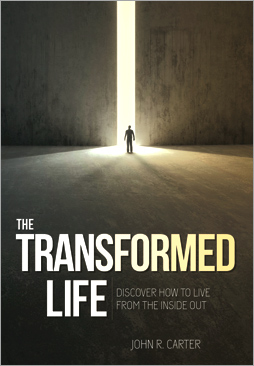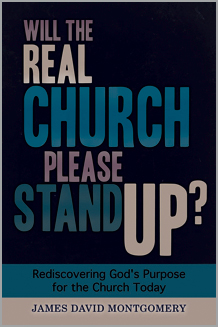The Resolutions of Jonathan Edwards
(1722-1723)
 Being sensible that I am unable to do anything without God’s help, I do humbly entreat him by his grace to enable me to keep these Resolutions, so far as they are agreeable to his will, for Christ’s sake.
Being sensible that I am unable to do anything without God’s help, I do humbly entreat him by his grace to enable me to keep these Resolutions, so far as they are agreeable to his will, for Christ’s sake.
Remember to read over these Resolutions once a week.
1. Resolved, that I will do whatsoever I think to be most to God’s glory, and my own good, profit and pleasure, in the whole of my duration, without any consideration of the time, whether now, or never so many myriad’s of ages hence. Resolved to do whatever I think to be my duty and most for the good and advantage of mankind in general. Resolved to do this, whatever difficulties I meet with, how many and how great soever.
2. Resolved, to be continually endeavoring to find out some new invention and contrivance to promote the aforementioned things.
3. Resolved, if ever I shall fall and grow dull, so as to neglect to keep any part of these Resolutions, to repent of all I can remember, when I come to myself again.
4. Resolved, never to do any manner of thing, whether in soul or body, less or more, but what tends to the glory of God; nor be, nor suffer it, if I can avoid it.
5. Resolved, never to lose one moment of time; but improve it the most profitable way I possibly can.
6. Resolved, to live with all my might, while I do live.
7. Resolved, never to do anything, which I should be afraid to do, if it were the last hour of my life.
8. Resolved, to act, in all respects, both speaking and doing, as if nobody had been so vile as I, and as if I had committed the same sins, or had the same infirmities or failings as others; and that I will let the knowledge of their failings promote nothing but shame in myself, and prove only an occasion of my confessing my own sins and misery to God.
9. Resolved, to think much on all occasions of my own dying, and of the common circumstances which attend death.
10. Resolved, when I feel pain, to think of the pains of martyrdom, and of hell.
11. Resolved, when I think of any theorem in divinity to be solved, immediately to do what I can towards solving it, if circumstances don’t hinder.
12. Resolved, if I take delight in it as a gratification of pride, or vanity, or on any such account, immediately to throw it by.
13. Resolved, to be endeavoring to find out fit objects of charity and liberality.
14. Resolved, never to do anything out of revenge.
15. Resolved, never to suffer the least motions of anger to irrational beings.
16. Resolved, never to speak evil of anyone, so that it shall tend to his dishonor, more or less, upon no account except for some real good.
17. Resolved, that I will live so as I shall wish I had done when I come to die.
18. Resolved, to live so at all times, as I think is best in my devout frames, and when I have clearest notions of things of the gospel, and another world.
19. Resolved, never to do anything, which I should be afraid to do, if I expected it would not be above an hour, before I should hear the last trump.
20. Resolved, to maintain the strictest temperance in eating and drinking.
21. Resolved, never to do anything, which if I should see in another, I should count a just occasion to despise him for, or to think any way the more meanly of him.
22. Resolved, to endeavor to obtain for myself as much happiness, in the other world, as I possibly can, with all the power; might, vigor, and vehemence, yea violence, I am capable of, or can bring myself to exert, in any way that can be thought of.
23. Resolved, frequently to take some deliberate action, which seems most unlikely to be done, for the glory of God, and trace it back to the original intention, designs and ends of it; and if I find it not to be for God’s glory, to repute it as a breach of the 4th Resolution.
24. Resolved, whenever I do any conspicuously evil action, to trace it back, till I come to the original cause; and then both carefully endeavor to do so no more, and to fight and pray with all my might against the original of it.
25. Resolved, to examine carefully, and constantly, what that one thing in me is, which causes me in the least to doubt of the love of God; and to direct all my forces against it.
26. Resolved, to cast away such things, as I find do abate my assurance.
27. Resolved, never willfully to omit anything, except the omission be for the glory of God; and frequently to examine my omissions.
28. Resolved, to study the Scriptures so steadily, constantly and frequently, as that I may find, and plainly perceive myself to grow in the knowledge of the same.
29. Resolved, never to count that a prayer, nor to let that pass as a prayer, nor that as a petition of a prayer, which is so made, that I cannot hope that God will answer it; nor that as a confession, which I cannot hope God will accept.
30. Resolved, to strive to my utmost every week to be brought higher in religion, and to a higher exercise of grace, than I was the week before.
31. Resolved, never to say anything at all against anybody, but when it is perfectly agreeable to the highest degree of Christian honor, and of love to mankind, agreeable to the lowest humility, and sense of my own faults and failings, and agreeable to the golden rule; often, when I have said anything against anyone, to bring it to, and try it strictly by the test of this Resolution.
32. Resolved, to be strictly and firmly faithful to my trust, that that in Prov. 20:6, “A faithful man who can find?” may not be partly fulfilled in me.
33. Resolved, always to do what I can towards making, maintaining, establishing and preserving peace, when it can be without over-balancing detriment in other respects.Dec.26, 1722.
34. Resolved, in narration’s never to speak anything but the pure and simple verity.
35. Resolved, whenever I so much question whether I have done my duty, as that my quiet and calm is thereby disturbed, to set it down, and also how the question was resolved. Dec. 18, 1722.
36. Resolved, never to speak evil of any, except I have some particular good call for it. Dec. 19, 1722.
37. Resolved, to inquire every night, as I am going to bed, wherein I have been negligent, what sin I have committed, and wherein I have denied myself: also at the end of every week, month and year. Dec.22 and 26, 1722.
38. Resolved, never to speak anything that is ridiculous, sportive, or matter of laughter on the Lord’s day. Sabbath evening, Dec. 23, 1722.
39. Resolved, never to do anything that I so much question the lawfulness of, as that I intend, at the same time, to consider and examine afterwards, whether it be lawful or no; except I as much question the lawfulness of the omission.
40. Resolved, to inquire every night, before I go to bed, whether I have acted in the best way I possibly could, with respect to eating and drinking. Jan. 7, 1723.
41. Resolved, to ask myself at the end of every day, week, month and year, wherein I could possibly in any respect have done better. Jan. 11, 1723.
42. Resolved, frequently to renew the dedication of myself to God, which was made at my baptism; which I solemnly renewed, when I was received into the communion of the church; and which I have solemnly re-made this twelfth day of January, 1722-23.
43. Resolved, never henceforward, till I die, to act as if I were any way my own, but entirely and altogether God’s, agreeable to what is to be found in Saturday, January 12. Jan.12, 1723.
44. Resolved, that no other end but religion, shall have any influence at all on any of my actions; and that no action shall be, in the least circumstance, any otherwise than the religious end will carry it. Jan.12, 1723.
45. Resolved, never to allow any pleasure or grief, joy or sorrow, nor any affection at all, nor any degree of affection, nor any circumstance relating to it, but what helps religion. Jan.12 and 13.1723.
46. Resolved, never to allow the least measure of any fretting uneasiness at my father or mother. Resolved to suffer no effects of it, so much as in the least alteration of speech, or motion of my eve: and to be especially careful of it, with respect to any of our family.
47. Resolved, to endeavor to my utmost to deny whatever is not most agreeable to a good, and universally sweet and benevolent, quiet, peace-able, contented, easy, compassionate, generous, humble, meek, modest, submissive, obliging, diligent and industrious, charitable, even, patient, moderate, forgiving, sincere temper; and to do at all times what such a temper would lead me to. Examine strictly every week, whether I have done so. Sabbath morning. May 5,1723.
48. Resolved, constantly, with the utmost niceness and diligence, and the strictest scrutiny, to be looking into the state of my soul, that I may know whether I have truly an interest in Christ or no; that when I come to die, I may not have any negligence respecting this to repent of. May 26, 1723.
49. Resolved, that this never shall be, if I can help it.
50. Resolved, I will act so as I think I shall judge would have been best, and most prudent, when I come into the future world. July 5, 1723.
51. Resolved, that I will act so, in every respect, as I think I shall wish I had done, if I should at last be damned. July 8, 1723.
52. I frequently hear persons in old age say how they would live, if they were to live their lives over again: Resolved, that I will live just so as I can think I shall wish I had done, supposing I live to old age. July 8, 1723.
53. Resolved, to improve every opportunity, when I am in the best and happiest frame of mind, to cast and venture my soul on the Lord Jesus Christ, to trust and confide in him, and consecrate myself wholly to him; that from this I may have assurance of my safety, knowing that I confide in my Redeemer. July 8, 1723.
54. Resolved, Whenever I hear anything spoken in commendation of any person, if I think it would be praiseworthy in me, that I will endeavour to imitate it.July 8, 1723.
55. Resolved, to endeavor to my utmost to act as I can think I should do, if I had already seen the happiness of heaven, and hell torments. July 8, 1723.
56. Resolved, never to give over, nor in the least to slacken my fight with my corruptions, however unsuccessful I may be.
57. Resolved, when I fear misfortunes and adversities, to examine whether ~ have done my duty, and resolve to do it; and let it be just as providence orders it, I will as far as I can, be concerned about nothing but my duty and my sin. June 9, and July 13 1723.
58. Resolved, not only to refrain from an air of dislike, fretfulness, and anger in conversation, but to exhibit an air of love, cheerfulness and benignity. May27, andJuly 13, 1723.
59. Resolved, when I am most conscious of provocations to ill nature and anger, that I will strive most to feel and act good-naturedly; yea, at such times, to manifest good nature, though I think that in other respects it would be disadvantageous, and so as would be imprudent at other times. May 12, July ii, and July 13.
60. Resolved, whenever my feelings begin to appear in the least out of order, when I am conscious of the least uneasiness within, or the least irregularity without, I will then subject myself to the strictest examination. July 4, and 13, 1723.
61. Resolved, that I will not give way to that listlessness which I find unbends and relaxes my mind from being fully and fixedly set on religion, whatever excuse I may have for it-that what my listlessness inclines me to do, is best to be done, etc. May 21, and July 13, 1723.
62. Resolved, never to do anything but duty; and then according to Eph. 6:6-8, do it willingly and cheerfully as unto the Lord, and not to man; “knowing that whatever good thing any man doth, the same shall he receive of the Lord.” June 25 and July 13, 1723.
63. On the supposition, that there never was to be but one individual in the world, at any one time, who was properly a complete Christian, in all respects of a right stamp, having Christianity always shining in its true luster, and appearing excellent and lovely, from whatever part and under whatever character viewed: Resolved, to act just as I would do, if I strove with all my might to be that one, who should live in my time. Jan.14′ and July ‘3’ 1723.
64. Resolved, when I find those “groanings which cannot be uttered” (Rom. 8:26), of which the Apostle speaks, and those “breakings of soul for the longing it hath,” of which the Psalmist speaks, Psalm 119:20, that I will promote them to the utmost of my power, and that I will not be wear’, of earnestly endeavoring to vent my desires, nor of the repetitions of such earnestness. July 23, and August 10, 1723.
65. Resolved, very much to exercise myself in this all my life long, viz. with the greatest openness I am capable of, to declare my ways to God, and lay open my soul to him: all my sins, temptations, difficulties, sorrows, fears, hopes, desires, and every thing, and every circumstance; according to Dr. Manton’s 27th Sermon on Psalm 119. July 26, and Aug.10 1723.
66. Resolved, that I will endeavor always to keep a benign aspect, and air of acting and speaking in all places, and in all companies, except it should so happen that duty requires otherwise.
67. Resolved, after afflictions, to inquire, what I am the better for them, what good I have got by them, and what I might have got by them.
68. Resolved, to confess frankly to myself all that which I find in myself, either infirmity or sin; and, if it be what concerns religion, also to confess the whole case to God, and implore needed help. July 23, and August 10, 1723.
69. Resolved, always to do that, which I shall wish I had done when I see others do it. Aug. 11, 1723.
70. Let there be something of benevolence, in all that I speak. Aug. 17, 1723.
 John Nuzzo is the senior pastor of Victory Family Church located in Cranberry Township, Pennsylvania. Pastor John and his wife Michelle founded the church in 1993. Under their leadership, the church has grown into a body of believers possessing the same vision—to reveal the love of God for all mankind. Their belief is that an individual’s understanding of the depths of God’s love will cause every man, woman and child to rise above their circumstances, have an eternal perspective in life, and be moved beyond their own needs to the needs of humanity. Pastor John’s teaching is delivered in a way that is relevant to the life and heart of every believer. Pastor John and Michelle’s desire is to see people experience God in everyday life.
John Nuzzo is the senior pastor of Victory Family Church located in Cranberry Township, Pennsylvania. Pastor John and his wife Michelle founded the church in 1993. Under their leadership, the church has grown into a body of believers possessing the same vision—to reveal the love of God for all mankind. Their belief is that an individual’s understanding of the depths of God’s love will cause every man, woman and child to rise above their circumstances, have an eternal perspective in life, and be moved beyond their own needs to the needs of humanity. Pastor John’s teaching is delivered in a way that is relevant to the life and heart of every believer. Pastor John and Michelle’s desire is to see people experience God in everyday life. 
 I have discovered that there are several key factors to successfully staffing a growing church. The first is providing clear direction. The second is finding the right people, and the third is managing the people with measurable and time sensitive goals.
I have discovered that there are several key factors to successfully staffing a growing church. The first is providing clear direction. The second is finding the right people, and the third is managing the people with measurable and time sensitive goals.

 As a minister of the Gospel, I have spent countless hours seeking the Lord and trying to find ways to be more effective in ministry. I am sure that many of us have thought, “If I could only develop a better message, more people would receive it,” or “Maybe if I say things different, then the people I am an authority over will grow.” Much to my surprise, as I grew in ministry, the Lord’s response to me was this, “You have the message, but you are missing the objective.” So, if the message is the Gospel, what is the objective? The objective is the impartation of spiritual life, Zoe life (the God-kind of life).
As a minister of the Gospel, I have spent countless hours seeking the Lord and trying to find ways to be more effective in ministry. I am sure that many of us have thought, “If I could only develop a better message, more people would receive it,” or “Maybe if I say things different, then the people I am an authority over will grow.” Much to my surprise, as I grew in ministry, the Lord’s response to me was this, “You have the message, but you are missing the objective.” So, if the message is the Gospel, what is the objective? The objective is the impartation of spiritual life, Zoe life (the God-kind of life). From the words of Christ in Revelation 2:12-17, it is clear that a very serious false doctrine — a spiritual infection — was being advanced in the Pergamum congregation by certain unnamed leaders. It only takes a few spiritual leaders getting off track to affect the longevity of a church. It is important to recall that physical infections begin at the microscopic level with a relatively small number of contagions and that many are often very treatable if they are addressed in their early stages. However, if they are left untreated, infections can quickly grow out of control and lead to serious physical complications or even death. In Christ’s words to Pergamum it is clear that a spiritual disease had infected the church of Pergamum, but it was still in its early stages.
From the words of Christ in Revelation 2:12-17, it is clear that a very serious false doctrine — a spiritual infection — was being advanced in the Pergamum congregation by certain unnamed leaders. It only takes a few spiritual leaders getting off track to affect the longevity of a church. It is important to recall that physical infections begin at the microscopic level with a relatively small number of contagions and that many are often very treatable if they are addressed in their early stages. However, if they are left untreated, infections can quickly grow out of control and lead to serious physical complications or even death. In Christ’s words to Pergamum it is clear that a spiritual disease had infected the church of Pergamum, but it was still in its early stages.  Marty Blackwelder ministers in various Local Churches and Bible Schools around the world. He is a graduate of Samford University and Rhema Bible Training Center. He served on the staff of Kenneth Hagin Ministries for eleven years. Marty traveled as a member of Kenneth E. Hagin’s Crusade Team from 1993 through May of 2004 assisting with the music ministry and teaching God’s Word. He and his wife, Lola, also served as associate pastors of Rhema Bible Church in Broken Arrow, Oklahoma under Pastor Kenneth Hagin Jr. In addition, Marty served as an instructor in Rhema Bible Training Center. He and Lola are the parents of two daughters. You can learn more about Marty’s ministry at
Marty Blackwelder ministers in various Local Churches and Bible Schools around the world. He is a graduate of Samford University and Rhema Bible Training Center. He served on the staff of Kenneth Hagin Ministries for eleven years. Marty traveled as a member of Kenneth E. Hagin’s Crusade Team from 1993 through May of 2004 assisting with the music ministry and teaching God’s Word. He and his wife, Lola, also served as associate pastors of Rhema Bible Church in Broken Arrow, Oklahoma under Pastor Kenneth Hagin Jr. In addition, Marty served as an instructor in Rhema Bible Training Center. He and Lola are the parents of two daughters. You can learn more about Marty’s ministry at  We have all heard the old adage: “the secret to a man’s future lies hidden in his daily routine.” This is certainly a reality. What one does today, greatly determines the success of his tomorrow. This truth holds great significance not only for our natural progression in life – but for our spiritual progression in Christ as well.
We have all heard the old adage: “the secret to a man’s future lies hidden in his daily routine.” This is certainly a reality. What one does today, greatly determines the success of his tomorrow. This truth holds great significance not only for our natural progression in life – but for our spiritual progression in Christ as well. Pastor & Author Dennis Cummins is a 3rd generation pastor and has been in ministry for over two decades, ministering in worship, the Word, and prayer. He is the Senior Pastor of
Pastor & Author Dennis Cummins is a 3rd generation pastor and has been in ministry for over two decades, ministering in worship, the Word, and prayer. He is the Senior Pastor of 
 Do you know God or do you only know of God, or about a god? There’s a big difference. In Psalms 46:10 it says, “Be still and know that I am God.” We have been charged as Christians to be still and know God. This is not a suggestion or an option as a disciple of Christ. This is God Himself speaking to us to take some time to get to know Him—His heart, His values, His Character, His Judgment and His love. According to the Barna survey, we can conclude that most church-goers don’t see any benefit in getting to know God let alone making any sacrifices for Him.
Do you know God or do you only know of God, or about a god? There’s a big difference. In Psalms 46:10 it says, “Be still and know that I am God.” We have been charged as Christians to be still and know God. This is not a suggestion or an option as a disciple of Christ. This is God Himself speaking to us to take some time to get to know Him—His heart, His values, His Character, His Judgment and His love. According to the Barna survey, we can conclude that most church-goers don’t see any benefit in getting to know God let alone making any sacrifices for Him. Joe Cameneti is the Senior Pastor of
Joe Cameneti is the Senior Pastor of  Jeff Perry is Senior Pastor of St. Louis Family Church, a life-giving, Jesus-centered, Bible-based church in the St. Louis area.
Jeff Perry is Senior Pastor of St. Louis Family Church, a life-giving, Jesus-centered, Bible-based church in the St. Louis area. Early on in my Christian walk, I learned not to underestimate the value of everyday life. The least-noticed things and the most “invisible” people are often facilitating the greatest impact. The real world-changers in World War II were not just the guys on the battlefield—they were also the people under the ground digging up the coal to fuel the world. The real changers are the Rosa Parks of the world, who take a stand for justice at the end of a hard work day, or Mrs. Everest, Winston Churchill’s nanny, who cared for him when no one else did and took the time to tell him about Jesus. These people in their normal everyday lives shaped the future.
Early on in my Christian walk, I learned not to underestimate the value of everyday life. The least-noticed things and the most “invisible” people are often facilitating the greatest impact. The real world-changers in World War II were not just the guys on the battlefield—they were also the people under the ground digging up the coal to fuel the world. The real changers are the Rosa Parks of the world, who take a stand for justice at the end of a hard work day, or Mrs. Everest, Winston Churchill’s nanny, who cared for him when no one else did and took the time to tell him about Jesus. These people in their normal everyday lives shaped the future. John Carter is committed to helping people reach their potential in life through spiritual transformation. Known for his engaging and practical teaching style, he is the senior pastor of Abundant Life Christian Center, a culturally diverse church located in Syracuse, NY. He is the founder and president of Mercy Works, a charitable organization that creatively meets the practical needs in distressed urban communities. John and his wife, Lisa have three sons – Jordan, Joshua and Caleb.
John Carter is committed to helping people reach their potential in life through spiritual transformation. Known for his engaging and practical teaching style, he is the senior pastor of Abundant Life Christian Center, a culturally diverse church located in Syracuse, NY. He is the founder and president of Mercy Works, a charitable organization that creatively meets the practical needs in distressed urban communities. John and his wife, Lisa have three sons – Jordan, Joshua and Caleb.  You and I cannot do it on our own. In fact, God never intended for us to try. God designed you for a family.
You and I cannot do it on our own. In fact, God never intended for us to try. God designed you for a family. Laura Cooke’s travels have taken her to 26 countries and to many states leading worship, teaching on worship, and helping churches. During her years as the Worship and Creative Arts Director at ORU, she not only led campus worship and coordinated bands, but she also trained and sent over 250 students on worship mission trips to 25 countries. Currently, Laura is obtaining a Masters’ Degree in Business and travels independently as a worship consultant, leading worship and helping to train worship teams across the country.
Laura Cooke’s travels have taken her to 26 countries and to many states leading worship, teaching on worship, and helping churches. During her years as the Worship and Creative Arts Director at ORU, she not only led campus worship and coordinated bands, but she also trained and sent over 250 students on worship mission trips to 25 countries. Currently, Laura is obtaining a Masters’ Degree in Business and travels independently as a worship consultant, leading worship and helping to train worship teams across the country. Walker and Haley Schurz have lived and ministered in Southern Africa since 1994. After graduating from Oral Roberts University they attended Rhema Bible Training Center and graduated in 1991.
Walker and Haley Schurz have lived and ministered in Southern Africa since 1994. After graduating from Oral Roberts University they attended Rhema Bible Training Center and graduated in 1991.  Charlie Daniels is the President and CEO of Daniels & Daniels Construction. He has over thirty years of construction experience. As a pastor’s son, Charlie Daniels embodies the heart of a pastor. He knows the daily pressures that pastors have to deal with, and has a heart to serve them. That is what Daniels & Daniels Construction Company is all about. Each employee has to have that same heart in order to work here. From the top to the bottom we care about pastors and believe it is our duty and call to build churches.
Charlie Daniels is the President and CEO of Daniels & Daniels Construction. He has over thirty years of construction experience. As a pastor’s son, Charlie Daniels embodies the heart of a pastor. He knows the daily pressures that pastors have to deal with, and has a heart to serve them. That is what Daniels & Daniels Construction Company is all about. Each employee has to have that same heart in order to work here. From the top to the bottom we care about pastors and believe it is our duty and call to build churches. Second Fiddle
Second Fiddle It is certainly a wonderful blessing to be a part of the church, the family of God. In Eph. 2:19, Paul writes, “Now, therefore, you are no longer strangers and foreigners, but fellow citizens with the saints and members of the household of God.” Through our acceptance of Jesus Christ as our savior and the new leader of our life, we become members of the household of God. As a family member, we now have the privilege to receive all that Jesus did for us in his death, burial, and resurrection.
It is certainly a wonderful blessing to be a part of the church, the family of God. In Eph. 2:19, Paul writes, “Now, therefore, you are no longer strangers and foreigners, but fellow citizens with the saints and members of the household of God.” Through our acceptance of Jesus Christ as our savior and the new leader of our life, we become members of the household of God. As a family member, we now have the privilege to receive all that Jesus did for us in his death, burial, and resurrection. Dr. Dave Williams, D. Min. is pastor of Mount Hope Church and International Outreach Ministries in Lansing, Michigan. Under his leadership, the church has grown from 225 to over 4000 members today. Pastor Dave strives to have the best-fed, best-cared for flock in the world, to provide a warm and welcoming place to worship, to take the message of the Gospel to the lost—no matter where in the world they are—and to build believers so they are prepared to share Jesus with everyone they meet.
Dr. Dave Williams, D. Min. is pastor of Mount Hope Church and International Outreach Ministries in Lansing, Michigan. Under his leadership, the church has grown from 225 to over 4000 members today. Pastor Dave strives to have the best-fed, best-cared for flock in the world, to provide a warm and welcoming place to worship, to take the message of the Gospel to the lost—no matter where in the world they are—and to build believers so they are prepared to share Jesus with everyone they meet. Our Sabbath rest is by faith. Under faith we can cease from our own works. Works that were required for the Israelites to do in the Old covenant to be accepted by God In this way the believer enters in and ceases from his own labors. God was bringing Israel to the Promised Land after their labors in Egypt this typifies rest in Messiah.
Our Sabbath rest is by faith. Under faith we can cease from our own works. Works that were required for the Israelites to do in the Old covenant to be accepted by God In this way the believer enters in and ceases from his own labors. God was bringing Israel to the Promised Land after their labors in Egypt this typifies rest in Messiah. Sam Smucker was raised in an Amish home in Lancaster County. Sam and his wife Sherlyn went to RHEMA Bible Training Center in Tulsa, OK. After graduating in 1977, they received an invitation from a newly formed group that was looking for a pastor. Sam and Sherlyn returned to Lancaster in May 1977 and started pastoring
Sam Smucker was raised in an Amish home in Lancaster County. Sam and his wife Sherlyn went to RHEMA Bible Training Center in Tulsa, OK. After graduating in 1977, they received an invitation from a newly formed group that was looking for a pastor. Sam and Sherlyn returned to Lancaster in May 1977 and started pastoring  Around eighteen years ago, I experienced several difficult family experiences and sometimes to deal with personal issues and continue the ministry of a church at the same time can take its toll on a pastor.
Around eighteen years ago, I experienced several difficult family experiences and sometimes to deal with personal issues and continue the ministry of a church at the same time can take its toll on a pastor. Pastor Joseph Coyne is the Senior Pastor of
Pastor Joseph Coyne is the Senior Pastor of Hebrews 4:3 (Amplified) “For we who have believed (adhered to and trusted in and relied on God) do enter that rest, in accordance with His declaration that those [who did not believe] should not enter when He said, As I swore in My wrath, They shall not enter My rest; & this He said although [His] works had been completed and prepared [and waiting for all who would believe] from the foundation of the world.”
Hebrews 4:3 (Amplified) “For we who have believed (adhered to and trusted in and relied on God) do enter that rest, in accordance with His declaration that those [who did not believe] should not enter when He said, As I swore in My wrath, They shall not enter My rest; & this He said although [His] works had been completed and prepared [and waiting for all who would believe] from the foundation of the world.” In the current economic environment, our CPA firm has fielded a lot of questions regarding designated/donor restricted contributions received by non-profit organizations (NPO’s), specifically benevolence donations. While designated contributions for a specific program, such as missions in a church setting or disaster relief for certain NPO’s, are relatively straightforward, contributions designated for a specific individual or family are problematic. I will discuss this issue further in the article, but for now a brief explanation of “designated” contributions is in order.
In the current economic environment, our CPA firm has fielded a lot of questions regarding designated/donor restricted contributions received by non-profit organizations (NPO’s), specifically benevolence donations. While designated contributions for a specific program, such as missions in a church setting or disaster relief for certain NPO’s, are relatively straightforward, contributions designated for a specific individual or family are problematic. I will discuss this issue further in the article, but for now a brief explanation of “designated” contributions is in order. I remember when I beat up the school bully. I surprised him and everyone else when it happened. Looking back, I probably could have responded in a better way, but the truth is, at the time I really felt good about it. Interestingly enough, afterward that the bully left me alone the rest of my school years and later we were co-workers together.
I remember when I beat up the school bully. I surprised him and everyone else when it happened. Looking back, I probably could have responded in a better way, but the truth is, at the time I really felt good about it. Interestingly enough, afterward that the bully left me alone the rest of my school years and later we were co-workers together.  Being sensible that I am unable to do anything without God’s help, I do humbly entreat him by his grace to enable me to keep these Resolutions, so far as they are agreeable to his will, for Christ’s sake.
Being sensible that I am unable to do anything without God’s help, I do humbly entreat him by his grace to enable me to keep these Resolutions, so far as they are agreeable to his will, for Christ’s sake.


